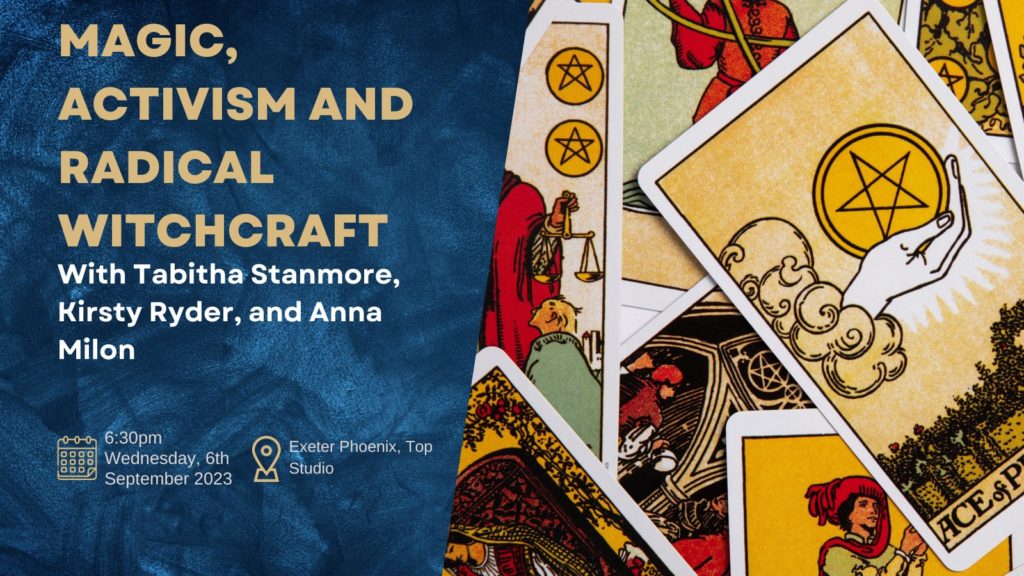Apocalyptic Times: Spirituality in Global Revolt
University of Exeter, 7-8th September 2023
Apocalyptic Times: Spirituality in Global Revolt
University of Exeter, 7-8th September 2023

Free
Wednesday 6th September, 6.30pm
Exeter Phoenix, Top Studio
How does magic change the world? Are witches political? The practice of magic and witchcraft has long been connected to ideas of self-empowerment and social transformation – from feminism and civil rights movements to eco activism and struggles against the ‘disenchanted world’. Do political and social movements need to take the recent growth of witchcraft more seriously? And what are its connections to longer histories of magic? Join us to discuss these questions and more with three specialists on the history and culture of magic, witchcraft and paganism: Dr Tabitha Stanmore, Kirsty Ryder, and Dr Anna Milon.
Speakers:
Dr Tabitha Stanmore is a historian of medieval and early modern magic. She is a postdoctoral researcher on the Leverhulme Seven County Witch Hunt Project, investigating the so-called Matthew Hopkins trials in 1640s England. Her first book, Love Spells and Lost Treasure: Service magic in England from the later Middle Ages to the early modern period, was published by Cambridge University Press in December 2022 and Cunning Folk: Life in the era of practical magic will be published with The Bodley Head in 2024
Kirsty Ryder is in the final stages of her PhD on the role of material culture in the women’s suffrage movement in the Department of Archaeology, University of York. As well as feminist and political history, as a lifelong Pagan her research has a strong focus on witchcraft. She worked with the Museum of Witchcraft and Magic to write and curate Radical Witchcraft: Oppression and Resistance which explored practices used to harm, heal and protect as well as the personal, performative and symbolic use of witchcraft to push political convictions and challenge authority. Kirsty is currently partnering with Museum of London Archaeology on the project Amulets, charms and witch bottles: Thinking about ‘magical’ objects in Museum collections through practitioner and curator-led interaction, with particular input toward ethical concerns and aims concerning contemporary Pagans and practitioners of witchcraft.
Dr Anna Milon researches at the juncture of environmental humanities, modern pagan studies, and speculative fiction studies, with a thesis on the Horned God as an environmental figure. She teaches at Advanced Studies in England, Bath, and at Greene’s College, Oxford. Additionally, she is a translator and peer reviewer for a number of academic publications. Her work appears in Folklore, Antikenrezeption im Horror, Fictional Practices of Spirituality, and Mapping the Impossible.